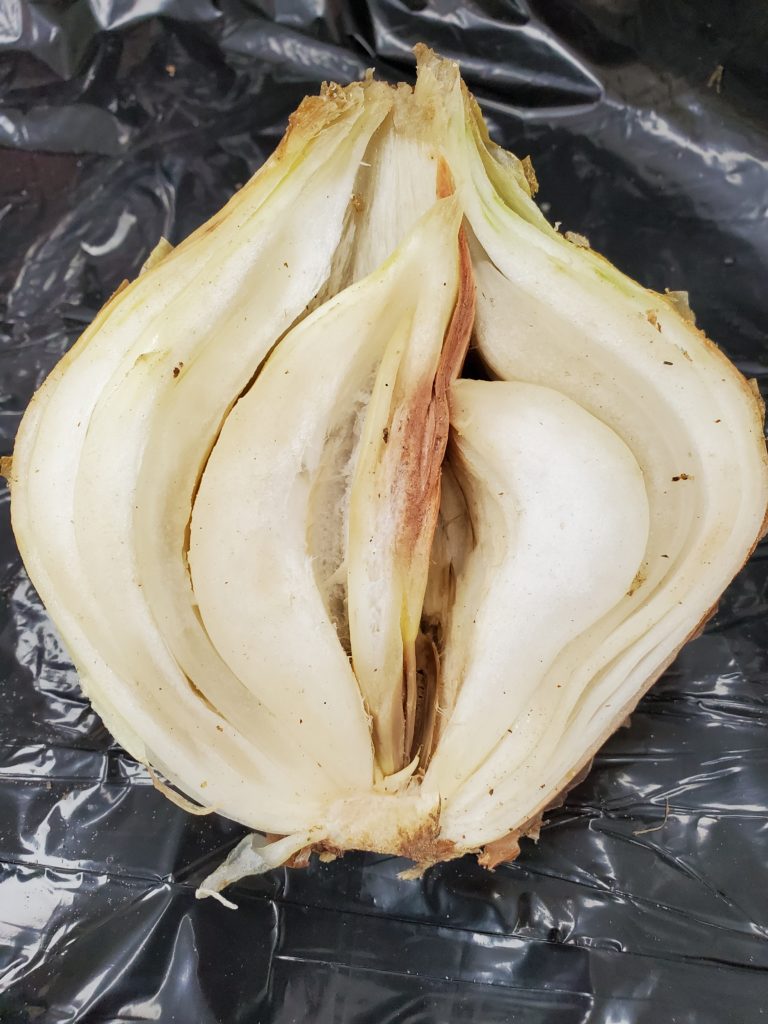By Bhabesh Dutta and Timothy Coolong
Organic onion production in diverse weather conditions in the United States is challenging due to numerous biotic and abiotic factors. The challenges are more extreme in states with year-round warm climates which includes Georgia.

Although these states grow onions in the spring, mild winter temperatures can increase challenges related to plant pathogens, insect and weed pests. Soil-borne bacterial diseases are extremely challenging as management practices are quite limited for organic onion growers. Losses due to soil-borne bacterial diseases like Burkholderia spp. (causal agent of sour skin and slippery skin) are considerable, and based on conservative estimates, the losses can be as high as $14 million to $22 million annually in both conventional and organic onion.
Although cultural practices like biofumigation and crop rotation have been explored, the success of these practices is yet to be fully estimated. One of the important drawbacks is the lack of technology to distinguish and monitor pathogenic Burkholderia vs. saprophytic Burkholderia. The University of Georgia (UGA) Vegetable Team, led by Bhabesh Dutta and his colleagues, are taking both basic and applied approaches to understand factors that impact onion virulence in Burkholderia and use them as markers to differentiate pathogenic vs. saprophytic Burkholderia. Using this assay, we are attempting to evaluate the effect of biofumigation and crop rotation on onion-pathogenic Burkholderia.
Other challenges for organic growers include lack of information on the mineralization rates of nitrogen sources in organic fertilizers. For example, pelleted poultry litter is widely used in organic onion production in southern states but the amount and their pattern of nitrogen-release of these products in a cool-season crop such as onions are not well known.
In addition, how these pasteurized animal-based organic fertilizers help in improving overall soil health has not been fully evaluated in onion production. Further, some growers have food safety concerns when utilizing animal/poultry-based manure products for fertilizer. Because of the recent outbreaks of food safety concerns in organic onion (E.coli, Listeria), the risk of future outbreaks need to be evaluated. The UGA and Texas A&M University teams are collaborating with their organic growers on improving the quality of organic onion by managing soil-borne bacterial diseases and refining soil amendments and cultural practices to improve soil fertility, soil health and food safety in the southeastern and southwestern U.S.









